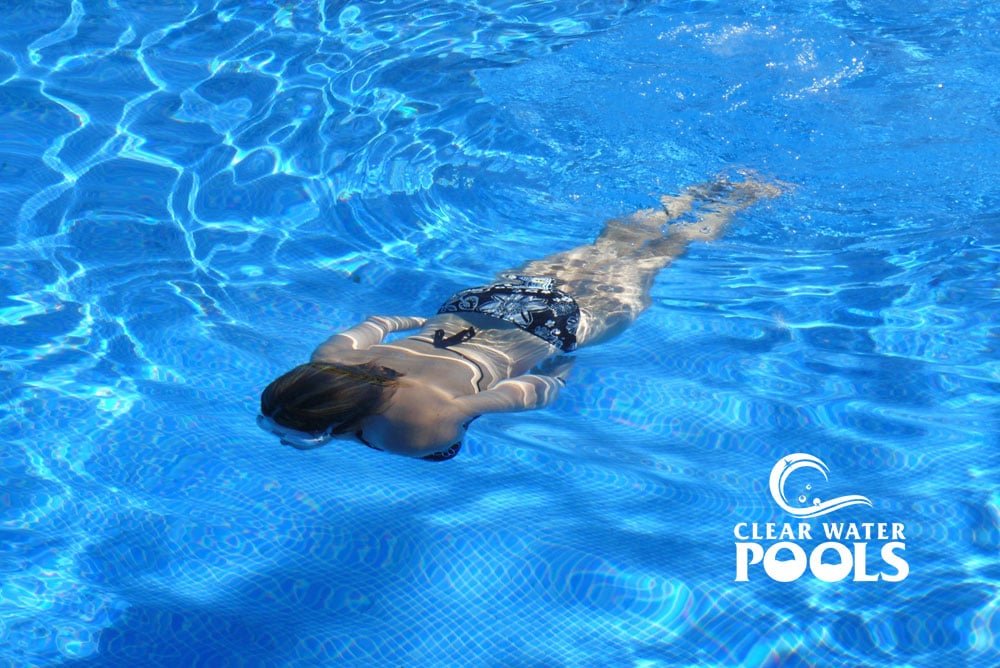Coronavirus and Swimming: What You Should Know

As the summer fast approaches and the growing threat of the coronavirus shows no signs of going away anytime soon, it’s only natural for folks throughout the Atlanta area, not to mention the rest of the country, to wonder: what does this mean for swimming?
Is it safe to take your family to the pool, beach or gym? Is it safe to swim in your own swimming pool in your own backyard? How can you protect yourself and those you love this summer while still enjoying one of America’s favorite family summertime activities: swimming?
Read on to learn the answers to these questions about more, and stay safe from coronavirus this summer and all year long.
Can Coronavirus Be Transmitted in the Water?
Unfortunately, more questions than answers still remain about the transmission of the coronavirus that causes COVID-19. What is known is that the virus causes a respiratory infection and is transmitted through minute droplets of mucus and spit that a person infected with the virus expels upon sneezing or coughing.
These droplets can enter a nearby person’s mouth, nose or eyes, and the person may not even know it. Once the virus is inside that person, it can cause him or her to either become infected him or herself or become a carrier of the virus able to pass it on to other people, who themselves may then become infected. In either case, whether you develop symptoms or not, once you catch the coronavirus, you can potentially pass it on to other people.
It is still unknown, however, whether or not the COVID-19 virus transmits through water, although, on March 10, the Centers for Disease Control and Prevention (CDC) did say the coronavirus has not be found in drinking water.
Can Filtration Remove Coronavirus?
The CDC also reported that standard water treatment technologies using disinfection and filtration together, like those used in the typical municipal water system, should effectively deactivate or remove the COVID-19 virus from water.
According to medical experts, the amount of chlorine found in the typical pool is able to kill the COVID-19 virus. A reasonable conclusion one can draw from this is that, as long as you properly maintain your pool or go for a swim at a facility that properly maintains its pool, the chemical disinfectants like chlorine and bromine that the water contains ought to be sufficient to make the virus inactive.
The CDC itself backed these conclusions by reporting that COVID-19 transmission in hot tubs and pools has not been found. Before you go diving (or cannonballing) into the deep end of the pool just yet, however, there are still some wise precautions worth taking.
Precautions Before Swimming During the Coronavirus Crisis
Swimming in your own properly-treated home pool with your own family while you’re all under lockdown is generally safe. However, while you are unlikely to catch COVID-19 from the water in a swimming pool, public or private, the risk of catching it from another person in the water with you is still relatively great (depending, of course, on the other person’s exposure.) Therefore, if you want to swim in a pool shared by other people you don’t live with, make sure to take all the necessary precautions.
Key among these is to avoid touching your face, and if you touch any steel or plastic surfaces not submerged in treated water, make sure to wash your hands with soap under hot water for at least 20 seconds (or the time it takes to sing the Happy Birthday song twice) afterward. Research is discovering that the COVID-19 virus can survive on such surfaces for several days. This includes not only the rim of the pool and steps or handrails but towels and towel rods, shower knobs, locker door handles, changing room benches and more.
Beyond that, the virus can also linger in the air in droplets called aerosols that can, then, settle on hard surfaces to linger for days. Therefore, even if a person exposed to the virus is no longer in the pool or area, that person could still leave active traces of the virus behind after he or she leaves.
Other important precautions to take when you swim during the coronavirus pandemic:
- Disinfect all surfaces people touch before and after use. You can use diluted bleach, rubbing alcohol or hydrogen peroxide.
- If you’ve been exposed to someone who has the virus, even if you’re not showing any symptoms, don’t go swimming with others or in a public setting for at least two weeks after.
- Make sure to cover your mouth and nose every time before you cough or sneeze. Then throw away any tissue you use and thoroughly wash your hands immediately afterward.
What About Swimming in Open Water?
Since the water in the ocean, lakes, rivers and streams is not treated with chemical disinfectants to allow for safe swimming, whether or not its safe to swim in these open waters is a different question. Fortunately, it’s one with a similar answer, if for different reasons.
That is, it is generally safe to swim (in terms of coronavirus transmission) in open bodies of water because the quantity and flow of water in such bodies makes it extremely unlikely a person can catch the virus from the water.
Just as in a gym or public pool, however, a person, can catch the virus from another person nearby in the water. Moreover, it is not generally recommended for a person to swim alone in open bodies of water, making physical distancing difficult. The risks of taking a swim in open water during the COVID-19 scare are mixed, then, as the water itself does not pose much of a risk, but the other people you need nearby to stay safe while swimming in open waters do pose a risk.
When you swim outdoors, whether in a public outdoor pool or an open lake or beach, try to keep your group small and maintain a distance of about six feet from one another.
Lastly, note that if you have a higher risk of infection, such as a compromised immune system, diabetes or heart or lung disease, then you should take even greater precautions before you swim during this crisis.




